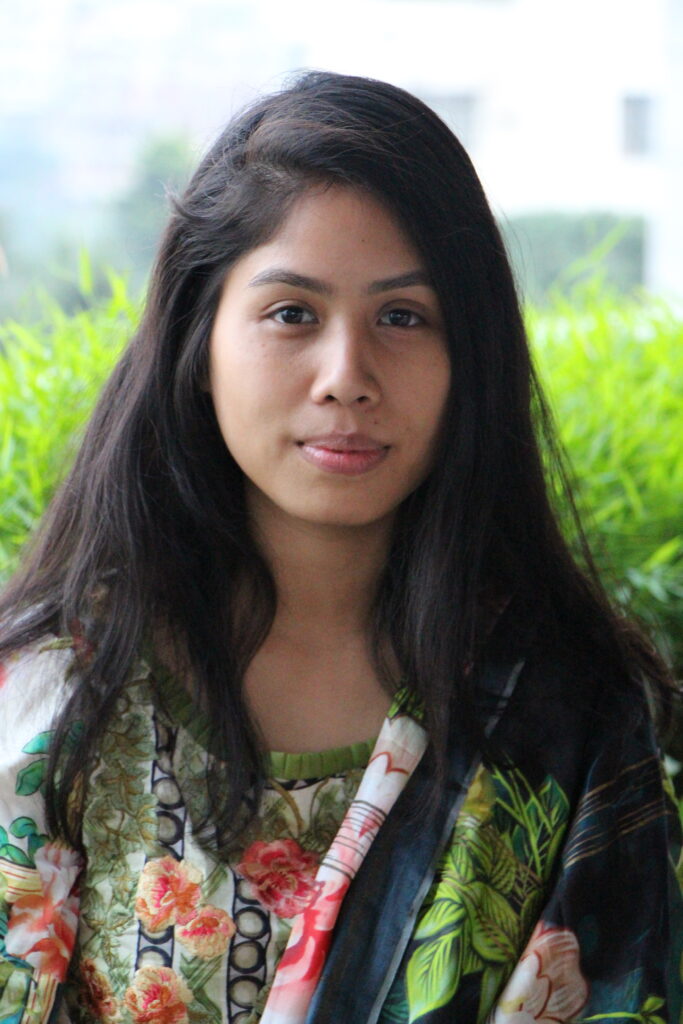
Anne Drong is a member of the Garo Indigenous community in Bangladesh and currently working at the International Labour Organization (ILO) as a national coordinator. In the ILO, Anne coordinates a program on reducing vulnerability to forced labour among women and girls along the labour migration pathway from Bangladesh to Middle Eastern countries.
DTP played a role in orienting Anne to labour and gender rights when she participated in the DTP training in Indonesia.
“The training was interesting, and it was instrumental, we were taught about forced labour, child labour, discrimination of women and children, ILO Convention 169 on Indigenous Peoples among other issues,” Anne said, “the training was useful to introduce me to international mechanisms.”
Anne went to school in India and it was during her university years in Bangladesh, she began to learn more about her culture and identity as an Indigenous woman. There was an intense national debate over whether Indigenous peoples would be recognised as Indigenous peoples in the constitution or as tribal/minor races/ethnic sects.
Anne began to join public events organised by the Indigenous peoples organisations in Bangladesh.
“I came to know so much about Indigenous community’s culture, rights, entitlement, and discriminations through my participation in those events,” Anne said, “those events were eye-openers for me. It was all about understanding my community better, what the rights are and how violations of the rights are taking place.”
Her passion for learning more about her community was amplified when she came to Australia to pursue her Master’s degree in Environment and Development at Melbourne University with an Australian Government scholarship.
“During that course, I studied a lot on the land rights issues in Madhupur Upazilla (the ancestorial land of the Garo community),” Anne said.
Anne always wanted to work for the development in Bangladesh. She said it gives her a sense of community and connection with her people, as she lacked that community connection in her early childhood.
She is still fond of the DTP training because that was the first time she met other Indigenous human rights advocates from the Asia-Pacific region countries. She was able to listen and empathise with their struggle. Most importantly she felt part of a bigger community.
DTP acknowledges the traditional custodians of the land on which we work, the Bedegal people of the Eora Nation. We recognise their lands were never ceded, and we acknowledge their struggles for recognition and rights and pay our respects to the Elders – past, present – and the youth who are working towards a brighter tomorrow. This continent always was and always will be Aboriginal land.
Aboriginal and Torres Strait Islander peoples should be aware that this website contains images or names of people who have passed away.
DTP acknowledges the traditional custodians of the land on which we work, the Bedegal people of the Eora Nation. We recognise their lands were never ceded, and we acknowledge their struggles for recognition and rights and pay our respects to the Elders – past, present – and the youth who are working towards a brighter tomorrow. This continent always was and always will be Aboriginal land.
Aboriginal and Torres Strait Islander peoples should be aware that this website contains images or names of people who have passed away.
Privacy Policy | Terms of Use | Disclaimer | Policies
© 2022 Diplomacy Training Program | ABN 31 003 925 148 | Web Design by Studio Clvr